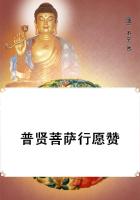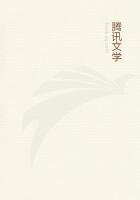As yet, however, there was no reasoning of the matter, and Charles Reade was writing books of tremendous adventure and exaggerated character, which he prided himself on deriving from the facts of the world around him. He was intoxicated with the discovery he had made that the truth was beyond invention, but he did not know what to do with the truth in art after he had found it in life, and to this day the English mostly do not. We young people were easily taken with his glittering error, and we read him with much the same fury, that he wrote. 'Never Too Late to Mend;' 'Love Me Little, Love Me Long;' 'Christie Johnstone;' 'Peg Woffington;' and then, later, 'Hard Cash,' 'The Cloister and the Hearth,'
'Foul Play,' 'Put Yourself in His Place'--how much they all meant once, or seemed to mean!
The first of them, and the other poems and fictions I was reading, meant more to me than the rumors of war that were then filling the air, and that so soon became its awful actualities. To us who have our lives so largely in books the material world is always the fable, and the ideal the fact. I walked with my feet on the ground, but my head was in the clouds, as light as any of them. I neither praise nor blame this fact;
but I feel bound to own it, for that time, and for every time in my life, since the witchery of literature began with me.
Those two happy winters in Columbus, when I was finding opportunity and recognition, were the heydey of life for me. There has been no time like them since, though there have been smiling and prosperous times a plenty;
for then I was in the blossom of my youth, and what I had not I could hope for without unreason, for I had so much of that which I had most desired. Those times passed, and there came other times, long years of abeyance, and waiting, and defeat, which I thought would never end, but they passed, too.
I got my appointment of Consul to Venice, and I went home to wait for my passport and to spend the last days, so full of civic trouble, before I should set out for my post. If I hoped to serve my country there and sweep the Confederate cruisers from the Adriatic, I am afraid my prime intent was to add to her literature and to my own credit. I intended, while keeping a sleepless eye out for privateers, to write poems.
concerning American life which should eclipse anything yet done in that kind, and in the mean time I read voraciously and perpetually, to make the days go swiftly which I should have been so glad to have linger. In this month I devoured all the 'Waverley novels,' but I must have been devouring a great many others, for Charles Reade's 'Christie Johnstone'
is associated with the last moment of the last days.
A few months ago I was at the old home, and I read that book again, after not looking at it for more than thirty years; and I read it with amazement at its prevailing artistic vulgarity, its prevailing aesthetic error shot here and there with gleams of light, and of the truth that Reade himself was always dimly groping for. The book is written throughout on the verge of realism, with divinations and conjectures across its border, and with lapses into the fool's paradise of romanticism, and an apparent content with its inanity and impossibility.
But then it was brilliantly new and surprising; it seemed to be the last word that could be said for the truth in fiction; and it had a spell that held us like an anesthetic above the ache of parting, and the anxiety for the years that must pass, with all their redoubled chances, before our home circle could be made whole again. I read on, and the rest listened, till the wheels of the old stage made themselves heard in their approach through the absolute silence of the village street. Then we shut the book and all went down to the gate together, and parted under the pale sky of the October night. There was one of the home group whom I was not to see again: the young brother who died in the blossom of his years before I returned from my far and strange sojourn. He was too young then to share our reading of the novel, but when I ran up to his room to bid him good-by I found him awake, and, with aching hearts, we bade each other good-by forever!















